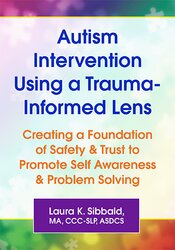The connection between Autism and trauma has frequently been ignored, but...
The likelihood has never been greater that if you're working with autism,
you're also treating trauma.
Conversely, if trauma is your focus, it's easy to miss or pathologize neurodiversity.
Effectively addressing the overlap of trauma and autism requires specialized skills and a
comprehensive understanding of both.
Luckily, this training course equips you with precisely the tools and techniques needed to
sensitively tailor therapy to each unique client. Our seasoned trainers, spanning mental health
therapists to speech-language pathologists, PhDs, and more, bring a wealth of knowledge and
real-world and lived experience to the table. You'll walk away knowing exactly how to…
- Recognize signs of PTSD and complex trauma in clients with autism for comprehensive care
- Process trauma with EMDR, ACT, and cognitive techniques
- Apply sensorimotor and polyvagal trauma-focused exercises from a trainer with autism
- Work with dissociation and individuals with high-functioning autism and trauma
PLUS, you get immediate access to a free bonus CE training, a $129.99 value, FREE!
The comprehensive training on treating trauma and providing affirming autism care is finally here
— take this opportunity NOW to provide your clients with a better life!







